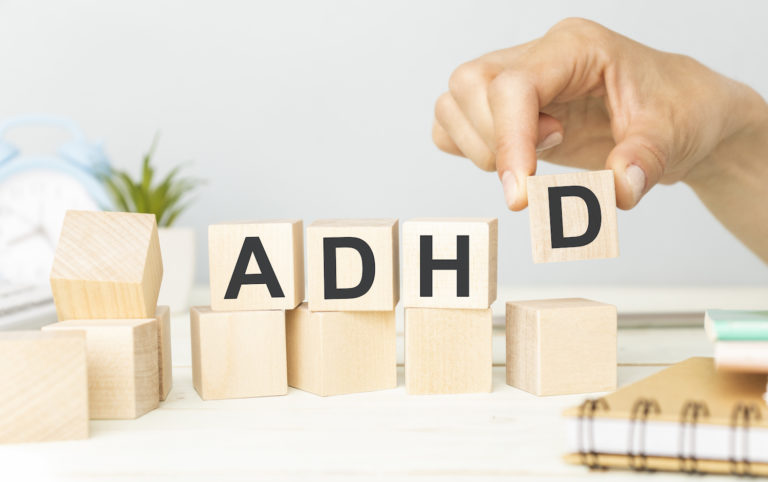Updated on 15. November 2021 from ÁYIO-Q Redaktion
Reading time: approx. 6 minutes
In the first part of the series of articles on dementia and Alzheimer´s, we explained in detail the theory of inflammation in Alzheimer’s disease. In summary, there is much to suggest that Alzheimer’s disease and possibly other forms of dementia are a result of chronic inflammation in the brain. Numerous scientists have found evidence to support this hypothesis in recent years.
The so-called gut-brain axis apparently plays a major role in the development of dementia and Alzheimer’s disease. In this article you will learn,
- what the relationship is between our gut and the brain,
- how vitamin and mineral status affect the development and progression of the disease,
- whether minerals and vitamins can help people with dementia.
The gut-brain axis as the origin of Alzheimer’s disease
As recent research has shown, there is a direct connection between our gut and our brain. Both organs are in constant contact via the so-called gut-brain axis and influence each other. For decades, gastroenterologist Professor Emeran A. Mayer, M.D., has been researching the link between bacterial colonization in the gut(microbiome) and diseases such as obesity, depression and Alzheimer’s disease.1
According to developmental biologist Professor Dr Bruce H Lipton, the human microbiome is something like our second brain. Among other things, the microorganisms secrete the neurotransmitters dopamine and serotonin as well as the stress hormones cortisol and noradrenalin. The vernacular describes the effect of the intestinal bacteria with the term gut feeling.
Several research papers showed the connection between a faulty colonization of the intestine(dysbiosis) and the occurrence of chronic inflammation in the body, including the brain. For example, two recent clinical studies from Japan were able to prove that massive dysbiosis is present in Alzheimer’s patients. According to Japanese scientists, intestinal malabsorption is one of the risk factors for dementia.2,3
How can this be explained? In the case of dysbiosis, putrefactive bacteria, fungi and parasites are found in the intestine, which excrete metabolic products as well as signal substances and release them into the intestinal mucosa. As a result, the permeability of the intestinal barrier(leaky gut) increases. Since the blood-brain barrier is more permeable in older people than in younger ones, foreign substances enter the brain more easily and call up microglial cells of the immune system.
Simply put, the microglial cells continuously sound the alarm due to the intestinal overgrowth, causing chronic inflammation to form in the brain. In order to break the vicious circle, a Polish group of researchers recommends that Alzheimer’s patients introduce beneficial bacteria(probiotics) into their intestines and thus restore their intestinal health.4
By the way: This method has long been used in naturopathy for all chronic diseases under the name of intestinal rehabilitation .
People with dementia and Alzheimer’s disease often have an undetected vitamin deficiency
For some years now, vitamins, minerals and other biologically active substances have been the focus of scientific attention. Although research into chronic diseases in particular is still in its infancy, there are promising approaches. In 2014, British scientists at the University of Exeter Medical School for the first time uncovered a link between a vitamin D deficiency, dementia as well as Alzheimer’s disease.
The basis of the review was the so-called Cardiovascular Health Study in the USA, in which more than 1600 men and women participated. At the beginning of the study, none of the subjects suffered from dementia. Blood samples were taken at seven-year intervals and the vitamin D level(25-OH vitamin D) was determined from them. The evaluation showed that in older people a deficit of vitamin D significantly increases the risk of developing Alzheimer’s disease within the next few years.5
In 2017, an Austrian research team confirmed this result. Scientists from Danube University Krems searched the Cochrane database for studies on vitamin D and dementia. The result of the analysis: the lower the 25-OH vitamin D concentration in the blood, the higher the probability of developing dementia.6
In the case of the B vitamins, there is also new evidence regarding their efficacy in senile dementia. As part of the so-called Oxford Project, 168 people who had already passed the age of 70 took part in a placebo-controlled double-blind study. 85 subjects used a high-dose preparation containing folic acid, vitamin B6 and vitamin B12 for two years. The rest received a placebo.
Using MRI scans, scientists at the University of Oxford demonstrated that taking the three B vitamins slows the typical atrophy (shrinkage) of the brain as we age. In other words, vitamins B12, B6, and folic acid can help maintain cognitive performance longer.7
A 2012 review shows that high-dose vitamin B12 therapy can improve mental abilities in patients with dementia. However, this only applies to those who have a vitamin B12 deficiency. Renowned Canadian physician Professor Dr. John David Spence recommends checking blood levels of vitamin B12 regularly to prevent dementia and stroke. If there is an undersupply, an appropriate preparation should be taken.8,9
Other vitamins that may be beneficial for dementia patients
Studies show that a daily intake of 50 mg of thiamine (vitamin B1) may be helpful for dementia patients. It helps maintain neuronal and nerve connections.10
People who eat a diet rich in vitamin C and vitamin E have a significantly lower risk of developing Alzheimer’s disease. Taking vitamin E may even slow the progression of the disease.11
Do minerals, omega-3 fatty acids and alpha lipoic acid help with dementia and Alzheimer’s?
To date, there has been no meaningful research on minerals that examines their role in the development and progression of dementia in more detail. One exception is the mineral magnesium.
As several studies have shown, a magnesium deficit increases the body’s tendency to inflammation. In addition, the vital mineral is involved in the transmission of nerve impulses in the brain. Since low blood magnesium levels have been found in people with dementia, there may be a causal link.12
Research from the University of Maryland Medical Center found that daily intake of 30 to 40 mg of zinc can improve cognitive function and memory in Alzheimer’s patients.13
The situation is even clearer with fish oils (omega-3 fatty acids) and alpha lipoic acid. An American research group was able to prove the effectiveness of both substances in people with Alzheimer’s disease.
In a study with a total of 87 participants, the combined intake of alpha lipoic acid and omega-3 fatty acids slowed down the cognitive decline of Alzheimer’s patients over a period of 12 months compared to the placebo group.14
Does phosphatidylserine influence the symptoms of Alzheimer’s disease?
The vital lipid phosphatidylserine has been used over the last three decades by naturopathic therapists as a dietary supplement to treat Alzheimer’s disease and other memory problems. A large body of research indicates improved cognitive abilities after ingestion.15-17
According to American physician Dr. Jonathan Graff-Radford of the Mayo Clinic in Rochester, phosphatidylserine has only a minor effect in Alzheimer’s patients with mild symptoms. Moreover, the positive changes are said to last only a few months. However, Dr. Graff-Radford does not reveal in his statement which scientific data he bases these statements on.18
Related articles: Alzheimer’s disease and dementia
- Morbus Alzheimer’s disease – Naturopathy in the treatment of Alzheimer’s disease
- Morbus Alzheimer’s disease – Psychological and emotional view of Alzheimer’s disease
- Dementia and Alzheimer’s disease – What is the influence of the human mind?
- Dementia and Alzheimer’s disease – Causes, prevention, treatment
- Morbus Alzheimer’s disease – Overview and conventional therapies
Sources:
[1] The Mad Gut-Brain Connection and Its Implications for Health, at https://www.fitbook.de
[2] Saji N et al. Relationship between dementia and gut microbiome-associated metabolites: a cross-sectional study in Japan. Scientific Reports. 2020;10:8088.
[3] Saji N et al. Analysis of the relationship between the gut microbiome and dementia: a cross-sectional study conducted in Japan. Scientific Reports. 2019;9:1008.
[4] Sochocka M et al. The Gut Microbiome Alterations and Inflammation-Driven Pathogenesis of Alzheimer’s Disease-a Critical Review. Mol Neurobiol. 2019 Mar;56(3):1841-1851.
[5] Littlejohns TJ et al. Vitamin D and the risk of dementia and Alzheimer disease. Neurology. 2014 Sep 2;83(10):920-8.
[6] Sommer I et al. Vitamin D deficiency as a risk factor for dementia: a systematic review and meta-analysis. BMC Geriatr. 2017 Jan 13;17(1):16.
[7] Smith AD et al. Homocysteine-lowering by B vitamins slows the rate of accelerated brain atrophy in mild cognitive impairment: a randomized controlled trial. PLoS One. 2010 Sep 8;5(9):e12244.
[8] Moore E et al. Cognitive impairment and vitamin B12: a review. Int Psychogeriatr. 2012 Apr;24(4):541-56.
[9] Spence JD. Metabolic vitamin B12 deficiency: a missed opportunity to prevent dementia and stroke. Nutr Res. 2016 Feb;36(2):109-16.
[10] New Data Suggests Raising Vitamin B1 Levels very high Helps People Living with mild Alzheimer’s Disease, auf https://burke.weill.cornell.edu
[11] Gugliandolo A et al. Role of Vitamin E in the Treatment of Alzheimer’s Disease: Evidence from Animal Models. Int J Mol Sci. 2017 Nov 23;18(12):2504.
[12] Dominguez LJ, Barbagallo M. Nutritional prevention of cognitive decline and dementia. Acta Biomed. 2018; 89(2): 276–290.
[13] Squitti R et al. Zinc Therapy in Early Alzheimer’s Disease: Safety and Potential Therapeutic Efficacy. Biomolecules. 2020 Aug 9;10(8):1164.
[14] Shinto L et al. A randomized placebo-controlled pilot trial of omega-3 fatty acids and alpha lipoic acid in Alzheimer’s disease. J Alzheimer’s Dis. 2014;38(1):111-20.
[15] Olivera-Pueyo J, Pelegrín-Valero C. Dietary supplements for cognitive impairment. Actas Esp Psiquiatr. 2017 Sep;45(Supplement):37-47.
[16] Zhang YY et al. Effect of phosphatidylserine on memory in patients and rats with Alzheimer’s disease. Genet Mol Res. 2015 Aug 10;14(3):9325-33.
[17] Moré MI et al. Positive effects of soy lecithin-derived phosphatidylserine plus phosphatidic acid on memory, cognition, daily functioning, and mood in elderly patients with Alzheimer’s disease and dementia. Adv Ther. 2014 Dec;31(12):1247-62.
[18] Phosphatidylserine supplements: Can they improve memory?, auf https://www.mayoclinic.org















